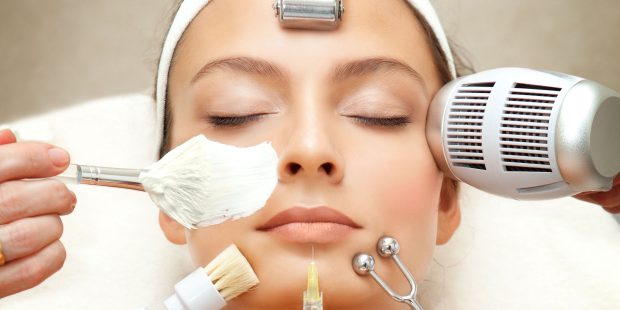How to Protect Your Skin as the Weather Cools Down
As the weather begins to cool down, it’s essential to adjust your skincare routine to protect your skin from the changing elements. The shift from warm and sunny days to crisp, cooler temperatures can take a toll on your skin. To keep your skin healthy and radiant during this transition, consider making some adjustments to your daily skincare regimen.
Transitioning your skincare routine doesn’t mean a complete overhaul. Instead, it involves making targeted changes that cater to your skin’s specific needs as the weather cools down.


The Basics of Cool Weather Skincare
First and foremost, consider switching to a gentler cleanser. During the summer months, you may have opted for a lightweight, foaming cleanser to combat sweat and excess oil. However, as the weather cools, your skin may become drier and more sensitive. A hydrating, creamy cleanser can help retain moisture and prevent your skin from feeling tight or irritated.
Moreover, don’t forget to exfoliate regularly. Exfoliation removes dead skin cells, promoting a more radiant complexion. However, be mindful of the frequency and the type of exfoliant you use. In colder weather, you may want to reduce the frequency of exfoliation to avoid over-drying your skin. Choose a chemical exfoliant like glycolic acid or lactic acid to gently slough off dead skin without the harsh abrasion of physical exfoliants.
Embrace More Hydration
One of the most significant challenges your skin faces during the cooler months is maintaining moisture. The drop in temperature and humidity levels can leave your skin feeling dry and tight. To combat this, you need to prioritize hydration in your skincare routine.
Hydration is key to achieving that plump, healthy glow even when the weather outside is anything but tropical. Start by incorporating a hydrating serum into your daily routine. Look for ingredients like hyaluronic acid, glycerin, or ceramides, which help lock in moisture and keep your skin hydrated throughout the day. Apply the serum after cleansing and before moisturizing to maximize its benefits.
Additionally, consider using a richer moisturizer. Swap out your lightweight summer moisturizer for a thicker, more emollient one. This will provide your skin with the extra moisture it needs to combat dryness and flakiness. Don’t forget to apply your moisturizer within a few minutes of cleansing to lock in that hydration.
For an extra boost of hydration, you can also add a hydrating facial mask to your weekly routine. Sheet masks and overnight masks are excellent choices for infusing your skin with moisture and preventing winter dryness.
Don’t Forget Sun Protection
Many people assume that sun protection is only necessary during the summer, but this couldn’t be further from the truth. Even in the cooler months, harmful UV rays from the sun can still damage your skin. In fact, snow can reflect up to 80% of UV radiation, making it crucial to continue protecting your skin year-round.
Sun protection should be a non-negotiable part of your skincare routine, regardless of the season. To protect your skin from UV rays, use a broad-spectrum sunscreen with at least SPF 30 every day. Apply it as the final step in your morning skincare routine, even if you don’t plan on spending much time outdoors. UV rays can penetrate windows, so if you’re indoors but near a window, you’re still at risk.
In addition to sunscreen, consider incorporating a good pair of sunglasses into your daily wardrobe. Not only do they protect your eyes from harmful UV rays, but they also shield the delicate skin around your eyes from sun damage. For those who wear prescription glasses, investing in prescription aviator sunglasses is an excellent choice, offering both vision correction and sun protection in one stylish package.
Humidify Your Indoor Environment
The dry indoor air caused by heating systems during the colder months can wreak havoc on your skin. Low humidity levels can lead to increased dryness, and flakiness, and even exacerbate skin conditions like eczema. To combat the drying effects of indoor heating, consider investing in a humidifier for your home.
Humidifiers are beneficial for maintaining healthy skin during the colder months. A humidifier adds moisture to the air, helping to keep your skin hydrated and comfortable. Place one in your bedroom to improve your sleep quality and wake up with a radiant complexion. Be sure to clean your humidifier regularly to prevent mold and bacteria buildup. Additionally, if you spend a lot of time in a dry office environment, consider using a small desktop humidifier to keep your skin comfortable throughout the workday.